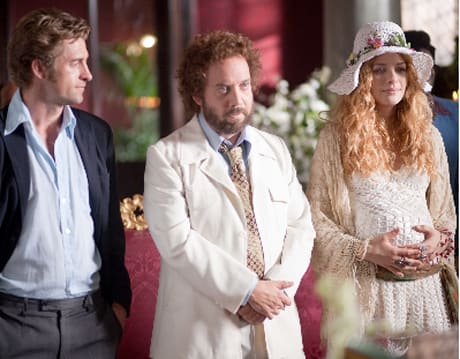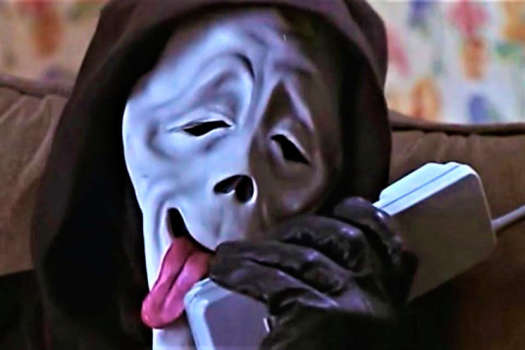Not many actors could have pulled off Barney Panofsky. A terrible TV producer and worse husband, he cheats on his wives, lies to everyone, proposes to a stranger on his wedding day, ignores his loved ones to watch a hockey game and possibly kills his friend, although the facts of the last case are under dispute. Paul Giamatti's performance is so good because it's so merciless: he doesn't try to make Barney palatable, instead suggesting a man who knows he's an asshole but, hey, so are you, pal. His Barney is too smart to tolerate the people around him, too selfish to deserve their attention and too self-aware not to hate himself. He's also very funny, in a curmudgeonly sort of way, and to be fair, he seems like a bastard by birth, not by choice. Giamatti is the reason to see this film, an unremarkable but slick and entertaining Robert Lantos production of Mordecai Richler's beloved novel. Ditching the first-person autobiographical structure of Richler's book, Michael Konyves's screenplay loses not only the story's earthy flavour, but also its reason for being. "The novel's called Barney's Version, and it's written in the first-person," says Richler in an archival interview on the Blu-Ray, "so the reader has to decide when he's being truthful, when he's being self-serving and how reliable a witness he is." Richler's comments suggest a rather more tantalizing movie than this linear, straightforward adaptation offers: without the suggestion that Barney is spinning his life to his best advantage, the plot feels a little aimless and cumbersome, since the structure of a human life isn't exactly cinematic (Barney's first marriage in Rome feels particularly rushed and other supporting characters are given short shrift). Still, the film is pleasant and absorbing, and it's fitting that a film that is ostensibly "Barney's Version" should be primarily a showcase for the man who plays Barney. Along with the Richler interview, the worthwhile Blu-Ray extras include a lengthy interview with Paul Giamatti and deleted scenes, which help fill some of the gaps in the narrative.
(eOne)Barney's Version
Richard J. Lewis

BY Will SloanPublished Jul 5, 2011



